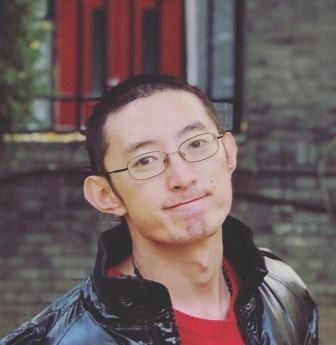China’s “assertiveness” has become a buzzword not only in media coverage but also in a growing body of scholarly works and the Chinese President Xi Jinping is reproached by domestic liberal-minded critics for deteriorating China-U.S. relations resulted from his perceived abandoning of former leader Deng Xiaoping’s cautious “hide-and-bide” foreign policy (“hiding our capacities and biding our time”) for ambitious and assertive one. However, placing too much blame on Xi may create a misconception that China’s assertive foreign policy is inaugurated by Xi and ignore the fact that China’s foreign policy evolved from humbleness to assertiveness on trade issues, territorial disputes, ideological front and economic coercion long before Xi took office.
Since China joined the WTO in 2001, its trade disputes with its major trade partners have continuously made headlines. Many China watchers may conclude that Xi’s China is assertive and unswerving in launching reciprocal retaliatory tariffs against the U.S. goods in contrast to his predecessor’s weakness and humbleness, but the fact is that China’s threatened “retaliation in kind” can date back to as early as 2011 when the U.S. House of Representatives was set to pass a bill allowing Obama administration to impose duties over undervalued Chinese currency. Since the state-run media, as the mouthpieces of the government, would be a better avenue to observe China’s evolving positions on trade disputes, a discourse analysis on selection of articles on trade issues in the official English-language newspaper China Daily suggests a clear thread that China’s stances developed from “downplaying trade war possibility”, “trade rebalancing efforts”, “protest or complaint over unfair duties” to “criticism”, “counter-measures” and “threatened retaliation” in 2009-2011 period.
On territorial sovereignty, some may contend that Xi introduced China’s assertive diplomacy in setting up an air defense identification zone in the East China Sea, conducting land reclamation in and militarization of the South China Sea, defying the ruling of a Hague-based international maritime tribunal favoring territorial claim of the Philippines in the South China Sea as well as his reluctance to give up military means to unify Taiwan. But China’s bold activism in the South China Sea started earlier. In 2011, the Chinese frigate Dongguan fired shots at the Philippine fishing boat in February and the Chinese marine petrol cut the cables of the Vietnamese oil exploration ship in May. In 2012, China established the city of Sansha in contested waters with the Philippines. All of these incidents took place before Xi assumed power and in Hu’s era. Besides, it’s not reasonable to accuse Xi of ushering in belligerent policy towards Taiwan, for he only inherited the policy of his predecessors who never abandoned the use of force for “reunification”.
On ideological front or development model, China’s assertiveness is reflected in Xi’s “Confidence Doctrine” that urged Communist party members and the Chinese people to have confidence in “the chosen path”, “political system”, “guiding theories” and “the Chinese culture”. It indicates an insistence on “China model” or “China exceptionalism” and the resistance to the influence of western-style democratic institutions. Nonetheless, the concept of “China model” can be traced back to his predecessors: Deng Xiaoping said that “China has its own model” in 1988, and Jiang Zemin declared that “there can’t be only one development model in the world” in 2000. During the 2008 global financial crisis, China’s economy recovered swiftly with a government-led multi-trillion-yuan stimulus program. As Hu administration believed it was the authoritarian political system that helped China weather economic slump and thus considered it as an institutional advantage over the western democracy, “China model” or “Beijing Consensus” was hyped as an alternative development model to rival the western capitalism. Therefore, although Xi has been aggressive in offering “China wisdom” to the world, the idea of “China model” was developed in the past decades of communist rule and was initially propagated under his predecessor Hu Jintao.
Furthermore, some may interpret China’s propensity to use coercive economic means to punish businesses that may have violated its “political correctness” (foreign airlines over the naming of “Taiwan”, Mercedes over Dalai Lama quotes) or countries that may have posed threat to its “national security” (South Korea over THAAD) as part of China’s assertiveness under Xi. It seems they forget that China has a long list of track record in this regard. It employed economic coercion against France over Olympic torch relay dispute in 2008, Norway over awarding of Nobel Peace Prize to an imprisoned dissident in 2010, and Japan over the purchase of Diaoyu/Senkaku Islands in 2012, etc., all of which predates Xi’s presidency.
Therefore, although Xi is determined to become the strongest leader since the death of Mao Zedong and keen to resort to assertive diplomacy for “national rejuvenation”, it’s misleading to lay too much on him as if he was the culprit who ushered in China’s assertiveness on the world stage, for Xi is not the first Communist party leader interested in assertiveness. Instead, he is only continuing or stepping up assertive foreign policy of his predecessors.
Image: Kremlin.ru [CC BY 4.0]
The views and opinions expressed in this article are those of the author and do not necessarily reflect the official policy or position of The Geopolitics.
 This work is licensed under a Creative Commons Attribution-NonCommercial-NoDerivatives 4.0 International License.
This work is licensed under a Creative Commons Attribution-NonCommercial-NoDerivatives 4.0 International License.

Keyu Chen served as financial translator for Goldman Sachs, J.P. Morgan and Deutsche Bank. He holds M.A. in international journalism and communication from Beijing Foreign Studies University. He’s interested in political communication, comparative politics and international relations.

